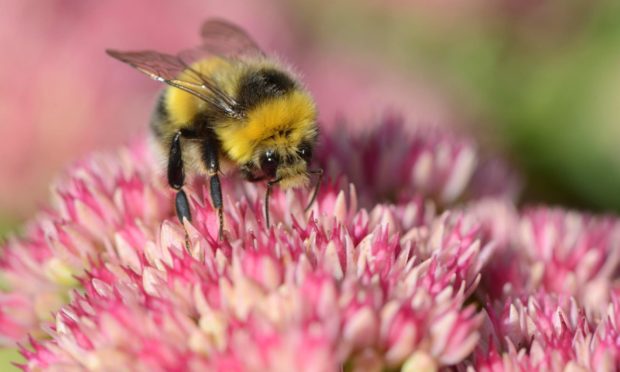Scotland’s bees were given a welcome boost in 2020 despite Covid-19 restrictions, according to a top nature agency.
NatureScot, formerly Scottish Natural Heritage, said its new report highlights “good progress” in creating 32 bee-friendly hotspots across a number of towns and cities and species-rich grassland in rural areas – with more than 30 partner organisations working towards delivering the Pollinator Strategy for Scotland.
The strategy aims to make Scotland more pollinator-friendly, halting and reversing the decline in native bee populations.
The report points to the work done by local authorities, community groups and environmental bodies in creating new wildflower meadows, bee banks and bug houses, plant pollinator friendly trees and shrubs and transforming roadside verges.
It also said more scientists and volunteers have been taking part in the UK’s National Pollinator Monitoring Scheme in Scotland.
NatureScot chief executive Francesca Osowska said: “Despite the challenges we faced in 2020, this progress report contains a lot of good news, and demonstrates the many far-reaching actions which are helping to boost pollinator populations across Scotland.
“Transforming our towns and cities into greener and healthier spaces is essential for pollinators and people alike, and the clear message is that we can all do our bit to help bees, butterflies and hoverflies thrive.
“No matter how big or small our own gardens and community spaces, if we take action to provide food and shelter for pollinators we can help these vital insects and in doing so ensure a nature-rich future for Scotland.”
